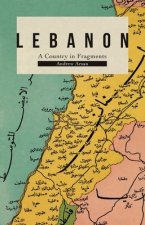
Doručení
Nákupní rádce





Nehodí se? Vůbec nevadí! U nás můžete do 30 dní vrátit
 Dárkový poukaz
V libovolné hodnotě
Dárkový poukaz
V libovolné hodnotě
S dárkovým poukazem nešlápnete vedle. Obdarovaný si za dárkový poukaz může vybrat cokoliv z naší nabídky.
Lebanon
 Angličtina
Angličtina
 146 b
146 b
30 dní na vrácení zboží
Mohlo by vás také zajímat


In this impressive synthesis, William Harris narrates the history of the sectarian communities of Mount Lebanon and its vicinity. He offers a fresh perspective on the antecedents of modern multi-communal Lebanon, tracing the consolidation of Lebanon's Christian, Muslim, and Islamic derived sects from their origins between the sixth and eleventh centuries. The identities of Maronite Christians, Twelver Shia Muslims, and Druze, the mountain communities, developed alongside assertions of local chiefs under external powers from the Umayyads to the Ottomans. The chiefs began interacting in a common arena when Druze lord Fakhr al-Din Ma'n achieved domination of the mountain within the Ottoman imperial framework in the early seventeenth century. Harris knits together the subsequent interplay of the elite under the Sunni Muslim Shihab relatives of the Ma'ns after 1697 with demographic instability as Maronites overtook Shia as the largest community and expanded into Druze districts. By the 1840s many Maronites conceived the common arena as their patrimony. Maronite/Druze conflict ensued. Modern Lebanon arose out of European and Ottoman intervention in the 1860s to secure sectarian peace in a special province. In 1920, after the Ottoman collapse, France and the Maronites enlarged the province into the modern country, with a pluralism of communal minorities headed by Maronite Christians and Sunni Muslims. The book considers the flowering of this pluralism in the mid-twentieth century, and the strains of new demographic shifts and of social resentment in an open economy. External intrusions after the 1967 Arab-Israeli war rendered Lebanon's contradictions unmanageable and the country fell apart. Harris contends that Lebanon has not found a new equilibrium and has not transcended its sects. In the early twenty-first century there is an uneasy duality: Shia have largely recovered the weight they possessed in the sixteenth century, but Christians, Sunnis, and Druze are two-thirds of the country. This book offers readers a clear understanding of how modern Lebanon acquired its precarious social intricacy and its singular political character.
Informace o knize
 Angličtina
Angličtina
Kategorie




 Jak nakupovat
Jak nakupovat

































